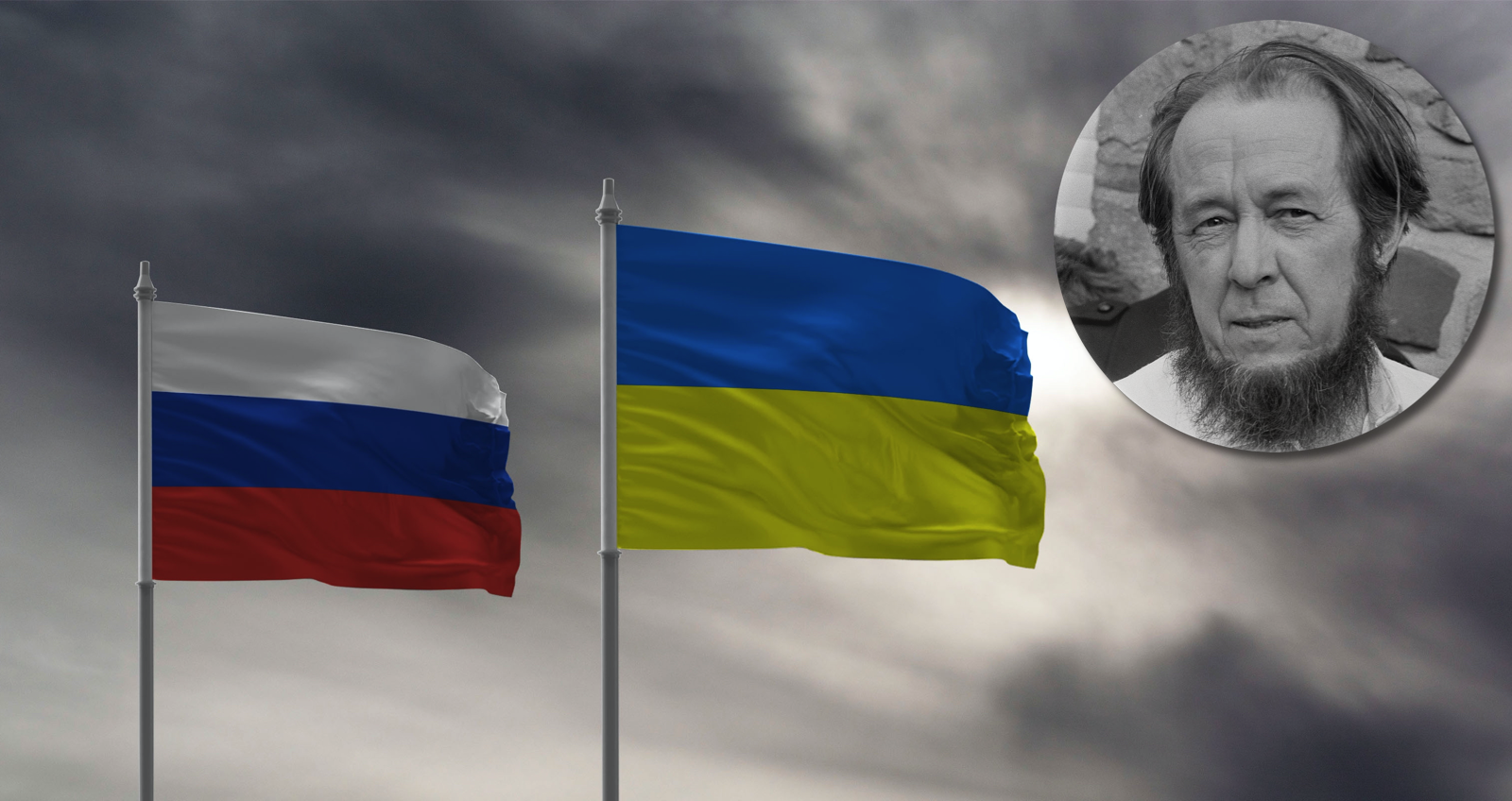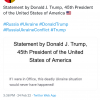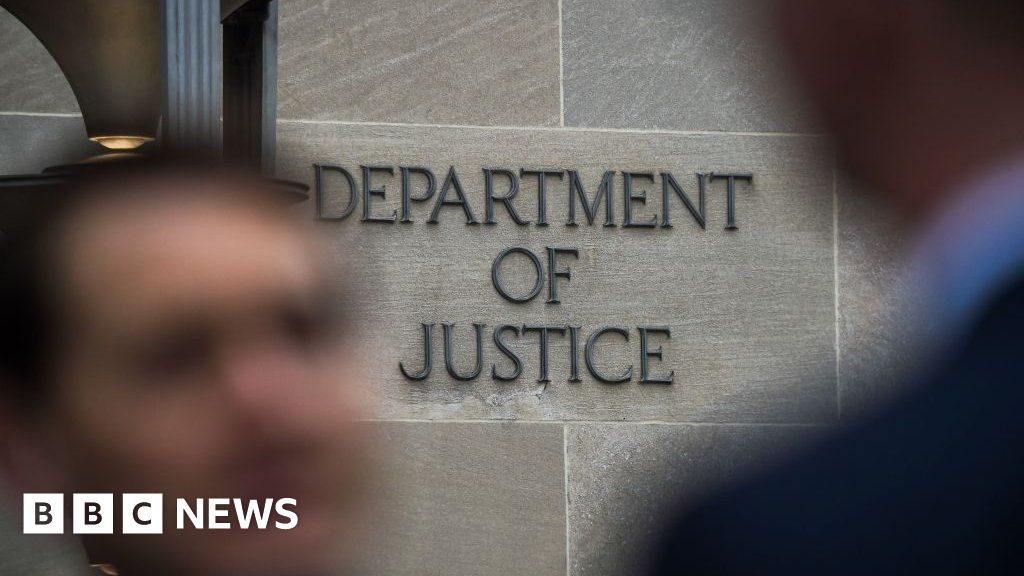Being a Ukrainian living in the USA for the last 18 years, I have long lost count of how many times I have been through some variation of the following discourses:
--- 1 ---
Them: Good to meet you. What’s your nationality?
Me: I am from Ukraine
Them: Ah, Russian, cool
Me: No, I’m Ukrainian
Them: Oh, what’s the difference?
Me: Well, you know, about the same as between Chinese and Koreans or Mexicans and Guatemalans; they are different nationalities.
Them: {either awkwardly apologize or get offended and walk away}
--- 2 ---
Them: You look so Russian. Are you Russian?
Me: No, I am Ukrainian. My ethnicity is Slavic. There’s no such thing as “looking Russian”.
Them: {a sarcastic} Oh excuse me! -OR- {a silent stare} -OR- Jeez you sound like you hate Russians!
--- 3 ---
Them: {overhearing me speak Russian} What part of Russia are you from?
Me: I’m from Ukraine
Them: Oh, The Ukraine, that’s in the eastern part, right?
Me: It’s Ukraine without “the”, it isn’t part of Russia, it is a separate sovereign country.
Them: {look confused and change the subject}
Sigh…
I know that many will find it obvious why such discourses are unnerving but since the above examples show that there are also many who have no clue, I’d like to explain.
The history of Ukraine is long and complicated but the short of it is roughly this: in their early histories Ukraine and Russia were developing on separate tracks with their own distinguishing cultural and linguistic features until Russia’s relationship to Ukraine became that of an imperialistic oppressor. Driven by a desire to assimilate Ukraine under its control, Russia resorted to a variety of measures ranging from brute force to economic warfare to cultural extermination policies banning Ukrainian language, scorning Ukrainian culture as crude and inferior and stereotyping Ukrainian people accordingly. This went on for quite some time. Various groups within Ukraine continuously resisted the oppression and fought for Ukrainian identity and self-determination with only a few short-lived successes until the eventual collapse of the USSR.
In 1991 Ukraine finally gained independence but its fight for identity and firm footing was far from over. During the soviet rule, Ukrainian economy was fashioned to play narrow (mainly agricultural and industrial) roles in the overall USSR economy which, upon USSR’s collapse, left Ukraine without the full range of industries and infrastructure necessary to support an independent economy. The country began its still ongoing struggle to become self-sustaining while Russia continued to be able to dominate economically, Ukrainian people and culture still often stereotyped as “less-than” with many also suffering from now internalized stereotypes of inferiority while a lot of the word didn’t even get the memo that Ukraine has ever been anything other than “the bread basket of the USSR”.
This history isn’t long-forgotten past, it is a living reverberation in the minds and hearts of millions of Ukrainians today affecting many aspects of our wellbeing. It’s an open and often unspoken wound that cuts across generations of Ukrainian nationals and the diaspora and it will take many more generations to fully heal this legacy of oppression.
Although I’m sure it does happen, and not at all to say that the groups I’m about to mention suffer any less from prejudiced treatment in the US, but I imagine that very few would be ignorant or insensitive enough to approach a stranger with Asian features and proclaim “You look so Chinese! Are you Chinese?” or overhear someone speaking Spanish and proceed to ask “Where in Mexico are you from”. As a Ukrainian Slav, that same consideration was not extended to me far too many times. When that happens, when people I meet automatically associate my origin, look or language with Russia, what hurts is not the ignorance itself but the reminder that this was the whole point: to erase Ukrainian as a standalone identity that is separate from Russia. Every time it happens, there’s a voice inside me that whispers, “the oppressor has succeeded”, that's what hurts.
There’s no changing the past, what is done is done. None of the above is said to demonize any nation or group of people or hand blame for the historical injustice that was done. I want to be seen as Ukrainian not because I hate Russians (I absolutely don’t hate or even dislike Russians and have a number of dear Russian friends whom I adore) but simply because I am not Russian, I am Ukrainian and being Ukrainian is a part of my overall identity that is important for me to honor. And all I ask of my sisters and brothers of all nationalities is just to remember this. Ukraine is not Russia or in Russia. Ukrainians are not Russians. It is “Ukraine”, not “the Ukraine”. A lot of Ukrainians speak Russian as well as Ukrainian; speaking Russian does not make someone Russian. There is long painful history that makes it a touchy subject and a lot of Ukrainians take it close to heart, please respect it.
Today is a special day. Today is International Vyshyvanka Day, the day on which Ukrainian nationals and diaspora around the world celebrate our traditional Ukrainian garment as a symbol of our identity, unity and heritage. Thank you for reading this long rant saved for this special occasion. If you are a fellow diasporan who has suffered similar frustrations, I hope it served as validation, and if you’re someone who may have unknowingly inflicted them, I hope it was of edifying value.
#InternationalVyshyvankaDay #UkrainianWoman #ДеньВишиванки
#MyStory
^ seen it on facebook from an actual ukrainian. i’ll take a ukrainians perspective over a random americans any day.
--- 1 ---
Them: Good to meet you. What’s your nationality?
Me: I am from Ukraine
Them: Ah, Russian, cool
Me: No, I’m Ukrainian
Them: Oh, what’s the difference?
Me: Well, you know, about the same as between Chinese and Koreans or Mexicans and Guatemalans; they are different nationalities.
Them: {either awkwardly apologize or get offended and walk away}
--- 2 ---
Them: You look so Russian. Are you Russian?
Me: No, I am Ukrainian. My ethnicity is Slavic. There’s no such thing as “looking Russian”.
Them: {a sarcastic} Oh excuse me! -OR- {a silent stare} -OR- Jeez you sound like you hate Russians!
--- 3 ---
Them: {overhearing me speak Russian} What part of Russia are you from?
Me: I’m from Ukraine
Them: Oh, The Ukraine, that’s in the eastern part, right?
Me: It’s Ukraine without “the”, it isn’t part of Russia, it is a separate sovereign country.
Them: {look confused and change the subject}
Sigh…
I know that many will find it obvious why such discourses are unnerving but since the above examples show that there are also many who have no clue, I’d like to explain.
The history of Ukraine is long and complicated but the short of it is roughly this: in their early histories Ukraine and Russia were developing on separate tracks with their own distinguishing cultural and linguistic features until Russia’s relationship to Ukraine became that of an imperialistic oppressor. Driven by a desire to assimilate Ukraine under its control, Russia resorted to a variety of measures ranging from brute force to economic warfare to cultural extermination policies banning Ukrainian language, scorning Ukrainian culture as crude and inferior and stereotyping Ukrainian people accordingly. This went on for quite some time. Various groups within Ukraine continuously resisted the oppression and fought for Ukrainian identity and self-determination with only a few short-lived successes until the eventual collapse of the USSR.
In 1991 Ukraine finally gained independence but its fight for identity and firm footing was far from over. During the soviet rule, Ukrainian economy was fashioned to play narrow (mainly agricultural and industrial) roles in the overall USSR economy which, upon USSR’s collapse, left Ukraine without the full range of industries and infrastructure necessary to support an independent economy. The country began its still ongoing struggle to become self-sustaining while Russia continued to be able to dominate economically, Ukrainian people and culture still often stereotyped as “less-than” with many also suffering from now internalized stereotypes of inferiority while a lot of the word didn’t even get the memo that Ukraine has ever been anything other than “the bread basket of the USSR”.
This history isn’t long-forgotten past, it is a living reverberation in the minds and hearts of millions of Ukrainians today affecting many aspects of our wellbeing. It’s an open and often unspoken wound that cuts across generations of Ukrainian nationals and the diaspora and it will take many more generations to fully heal this legacy of oppression.
Although I’m sure it does happen, and not at all to say that the groups I’m about to mention suffer any less from prejudiced treatment in the US, but I imagine that very few would be ignorant or insensitive enough to approach a stranger with Asian features and proclaim “You look so Chinese! Are you Chinese?” or overhear someone speaking Spanish and proceed to ask “Where in Mexico are you from”. As a Ukrainian Slav, that same consideration was not extended to me far too many times. When that happens, when people I meet automatically associate my origin, look or language with Russia, what hurts is not the ignorance itself but the reminder that this was the whole point: to erase Ukrainian as a standalone identity that is separate from Russia. Every time it happens, there’s a voice inside me that whispers, “the oppressor has succeeded”, that's what hurts.
There’s no changing the past, what is done is done. None of the above is said to demonize any nation or group of people or hand blame for the historical injustice that was done. I want to be seen as Ukrainian not because I hate Russians (I absolutely don’t hate or even dislike Russians and have a number of dear Russian friends whom I adore) but simply because I am not Russian, I am Ukrainian and being Ukrainian is a part of my overall identity that is important for me to honor. And all I ask of my sisters and brothers of all nationalities is just to remember this. Ukraine is not Russia or in Russia. Ukrainians are not Russians. It is “Ukraine”, not “the Ukraine”. A lot of Ukrainians speak Russian as well as Ukrainian; speaking Russian does not make someone Russian. There is long painful history that makes it a touchy subject and a lot of Ukrainians take it close to heart, please respect it.
Today is a special day. Today is International Vyshyvanka Day, the day on which Ukrainian nationals and diaspora around the world celebrate our traditional Ukrainian garment as a symbol of our identity, unity and heritage. Thank you for reading this long rant saved for this special occasion. If you are a fellow diasporan who has suffered similar frustrations, I hope it served as validation, and if you’re someone who may have unknowingly inflicted them, I hope it was of edifying value.
#InternationalVyshyvankaDay #UkrainianWoman #ДеньВишиванки
#MyStory
^ seen it on facebook from an actual ukrainian. i’ll take a ukrainians perspective over a random americans any day.








